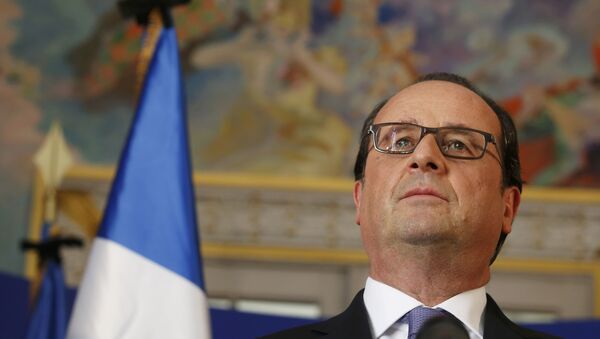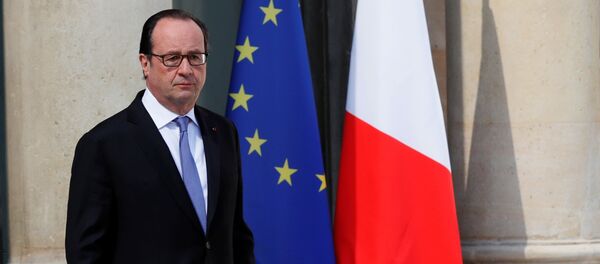"I am not convinced that Hollande's private talks with journalists on the duties of the President of the Republic are a matter for the High Court of Justice. However, the parliamentarians who support Sarkozy, like myself, see it as an opportunity to highlight Hollande’s incompetence and be more active than supporters of [presidential hopeful Alain] Juppe," Danesi said.
France’s former Prime Minister Alain Juppe is Sarkozy's main opponent in the contest for the presidential nomination from the Republican Party.
Danesi said that the motion to impeach Hollande was likely to be blocked by the ruling Socialist Party before the parliamentary vote.
"The government and the Socialist deputies will not allow the indictment to be placed on the agenda of the National Assembly," he said.
Under the existing rules, a French president can be removed from office only by a two-thirds majority of both chambers of the parliament.
Hollande's Socialist Party controls 51 percent of the National Assembly seats, and 37 percent of the Senate. Besides, the motion must also be approved by France's committee on laws before it reaches parliament.
The resolution was provoked by the release in October of a controversial book written by two investigative reporters, "A President Should Not Say That: Secrets of Five Years in Office," which records dozens of Hollande's private conversations with journalists including the president's comments on the French airstrikes in Syria and his admission that he personally ordered the assassination of enemies of the state.
According to the latest data of the Ipsos-Le Point joint poll, Hollande had the approval rating of 18 percent, which was a slight improvement on the September result of 15 percent.



